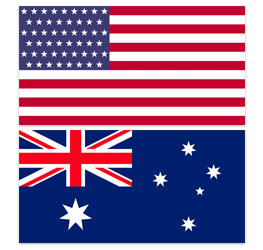
The call for nominations is currently closed
The call for applications for a junior scientist to travel to the National Institutes of Health in the USA is closed. The next round of applications is expected to open in early 2025.
The Australian Academy of Science invites applications from PhD candidates no more than 30 years of age at the time of application, to visit the National Institutes of Health (NIH) in the United States of America. The program is supported by the Adam J Berry Memorial Fund and the Foundation for the National Institutes of Health (FNIH) in the USA.
The Adam J Berry Memorial Fund (AJBMF) honours a young researcher with dual Australian and American citizenship, who was working in a NIH lab and preparing for graduate school when he tragically died in May 2002. The intention of the program is to support one young scientist who is at the same age, at a PhD stage and whose studies are in a similar area of research that Adam was in when he passed away. The program is co-managed on behalf of the Berry family by the Academy and the Foundation of the National Institutes of Health in the USA and has been actively supported each year by Emeritus Professor Stuart Yuspa, Adam’s supervisor at the time of his passing.
The duration of the visit is expected to be between 6 and 13 weeks and must occur between 1 July 2024 and 30 June 2025. See the National Institutes of Health for a list of institutes.
Only citizens and permanent residents of Australia, living in Australia at the time of application, are eligible to apply. Proposals in any health-related field of natural science will be considered with preference given to proposals relating to research in the area of cancer.
Under this scheme, applicants are expected to be undertaking PhD study in an Australian institution at the time of travel.
At the time of application, applicants should:
The proposed visit should initiate long-term collaborations and facilitate the development of the applicant’s career.
The successful applicant will receive a contribution up to a maximum of AUD4,000 towards the direct return air travel between Australia and the host institution, and a grant-in-aid of AUD1000 provided by the AJBMF. Additionally, a small daily stipend during the stay in America may be available at the discretion of the NIH host lab.
PLEASE NOTE: The stipend provided by FNIH is at the discretion of the individual NIH lab and has to be negotiated on an annual basis with potential NIH labs. It is recommended that applicants discuss the stipend when forming the project plan, and hosts are requested to advise if the stipend will be provided by the NIH lab in the supporting documentation.
The program does not provide funds for bench fees, overheads or institutional fees. The participant must obtain comprehensive travel and health insurance and provide a copy of their certificate of insurance to the Academy when claiming the grant funding.
An assessment panel will review the applications received to determine a shortlist of up to six applicants that will be submitted to the FNIH for selection of the awardee. The FNIH will select the one candidate that best fits into their current research projects. The FNIH will provide letters of invitation for visa and related purposes.
The decisions of the committee are based on the assessed competitiveness of the proposal. The Academy is not able to enter into discussion or correspondence regarding the reasons why an application is successful or not.
Applications are to be submitted through an online webform found here. Applicants must provide a research proposal of 500 words maximum, summarising what they expect to achieve from their visit to NIH.
Applications must include the following as attachments:
Successful applicants are required to submit two reports of their visit, one within 30 days and one 12 months after returning to Australia. Report templates will be provided to the successful recipient.
International Programs
Australian Academy of Science
GPO Box 783
Canberra ACT 2601
Phone: 02 6201 9467
Email: grants@science.org.au
This scheme is funded by the Adam J Berry Memorial Fund and is operated in collaboration with the Foundation for the National Institutes of Health.

© 2025 Australian Academy of Science